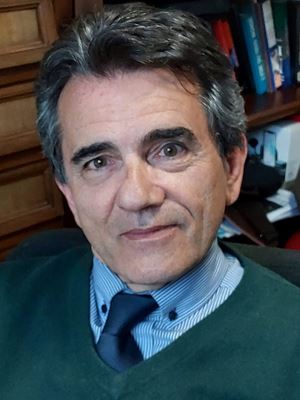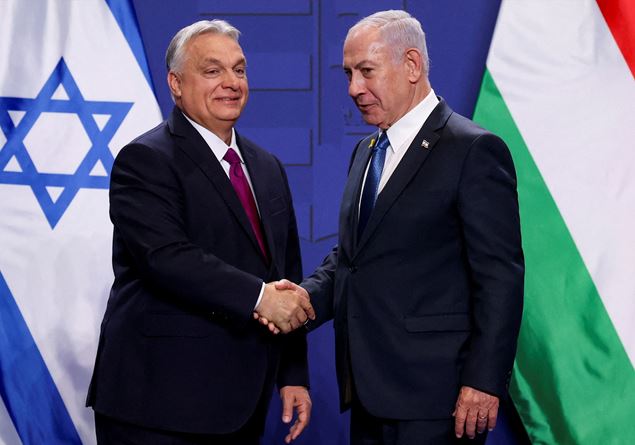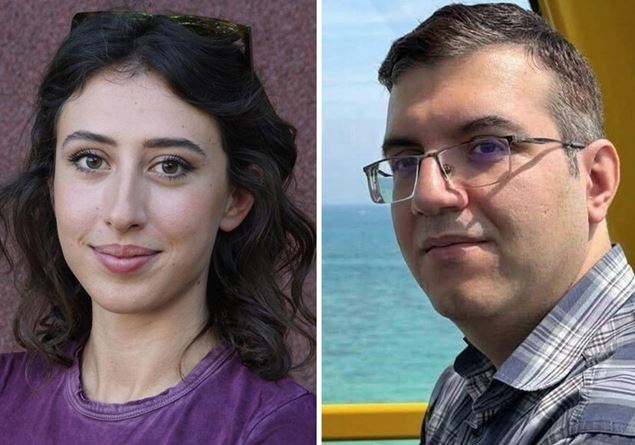Iranian Mohammed Abedini was released on Sunday by Justice Minister Carlo Nordio who asked for the precautionary measure to be lifted. Accused of having exported electronic components from the USA to Iran by supplying a terrorist organisation, his case had been linked by the Iranian ambassador to Italy, Mohammad Reza Sabouri, to that of Cecilia Sala, the journalist released after 20 days of detention under conditions severe and in the absence of formal charges, from Evin prison. Sabouri had promised that Sala’s prison conditions in Iran would be reciprocally linked to those of Abedini, despite the fact that at the time Sala was already locked up in the prison for political dissidents of the Islamic State of Evin in an isolation cell under so-called severe conditions and in the absence of formal charges: she slept on the floor, with the light always on and she was only allowed a few short phone calls and a visit from the Italian ambassador to Iran, Paola Amadei. Abedini instead found himself in a prison that was easy to reach, where he was held in much better conditions, and had met several times with his lawyer and some Iranian diplomats.
Many dictatorial regimes today increasingly resort to so-called hostage diplomacy, which represents one of the few weapons at their disposal. Some examples, in addition to the case of the journalist Cecilia Sala? American basketball player Brittney Griner was seized in Russian prisons, and foreign citizens rounded up indiscriminately in Venezuela, where a brutal dictatorship rules. People used by regimes as bargaining chips, signaling the weakness of these regimes. We talk about it with Alfredo Luis Somoza, historian, professional journalist and writer and president since 2003 of the International Economic Cooperation Institute (ICEI) of Milan who says: «what happened to Cecilia Sala is a real kidnapping. Italy, as we know, has always negotiated in these cases during various conflicts or situations of tension, such as, for example, to remain in the journalistic field, the case which occurred in the Iraqi capital in February ten years ago, when she was kidnapped by a Islamic Jihad organization the journalist Giuliana Sgrena. Italy has always followed the path of diplomacy compared to other “tougher” countries from this point of view such as Great Britain. The risk, endemic in these cases, or rather which has always been the case, is that of legitimizing a retaliatory action such as the Iranian one, which leveraged Italy which had carried out an arrest on a US mandate. I believe that if there had not been a “yes” from the United States, it would have been much more difficult to resolve this matter.”
United States that together carry out a policy of hostage exchanges, like countries that don’t even recognize each other and attack each other both on a political and military level like Israel and Palestine…
«Absolutely, from what we know in these hours the truce between Hamas and the State of Israel is being concluded and the agreement is based on the fact that on the one hand the people kidnapped on 7 October 2023 will be returned, and on the other side of Palestinian prisoners who are having guarantees or trials in Israel according to the norms of a democratic state and are currently incarcerated. This is a “macro” case compared to that of Cecilia Sala, but the principle of hostage exchange diplomacy is exactly the same».
This is what is also happening between Russia and Ukraine, and now Putin’s ally North Korea, to say that this is also happening in Europe.
«Zelensky spoke the other day, having taken prisoners of soldiers from North Korea, allied to the Russian invader, asking Pyongyang to initiate an exchange. Here too we see that war also pushes the attacked not to talk about peace, but rather to take hostages to use as bargaining chips.”

Yet between the arrests of the Russians and those of the Ukrainians there is a disparity in treatment and humanity such as, returning to the Sala case, that between the Italian journalist detained without charge in severe conditions and without her glasses, and the Iranian engineer under arrest in the Opera prison in Milan, reachable at any time by his lawyer to whom the lenses were left.
«There is absolutely a difference between regimes and democracies regarding the treatment of those detained. But I wouldn’t generalize it, because although documented and tellable by journalism, for example, and not silenced as in regimes, we have the United States running an offshore detention camp at Guantanamowhere the detainees are in fact kidnapped people. The objective of democracies, I believe, is to remove legitimacy from this mechanism.”
Doesn’t the fact that regimes like Iran, Russia or Venezuela use and push hostage diplomacy tell us about their fragility? Cornered by various factors, such as international sanctions, they respond with violence…
«This situation is one of the symptoms of the disease. The true and profound pathology is the lack of order in the world. The collapse of multilateralism, that is, of those places and countries responsible for resolving conflicts between states, which also include legal bodies such as the International Court, shows that these institutions are less and less respected and less and less authoritative. This absence guarantees impunity for those who kidnap, blackmail, or declare war.”
Today, however, do these “operations” pay off?
«You can invade a sovereign neighbourhood, as happened to Ukraine, or as Russia did, and be placed under sanction by continuing, quite calmly, to wage that war without major problems also because what Europe or USA take it or sell it to India. So the answer is yesthese operations pay off. You can kidnap people and ask for a human ransom like in the case of Iran, you can invade a country and get away with it like in the case of Russia, you can have fake elections, lose them and hide the minutes and evidence like Maduro did in Venezuela. But you can do like Erdogan, who “gets away with it” despite what he has been doing in Syria with the Kurds for years. Or like the dictator of North Korea, who continues to fire missiles at the heads of the Japanese and South Koreans.”
Everyone gets away with it. Why?
«Because on the one hand no power is capable of imposing an order. On the other hand, the multilateral institutions to prevent, prosecute and punish this type of action have been totally overwhelmed by the discredit and lack of trust not on the part of dictators. But also the fact that, for example, the United States has not joined the International Criminal Court: all elements that have weakened that type of supranational distance and at this point the consequence is that today these realities are worth little”.
Are credible solutions visible on the horizon? And, from this point of view, what role can Europe play?
«Europe, first and foremost, is a positive force in this panorama. He has the problems we know well, due to his political fragmentation, and he will have to decide what to do when he grows up. I mean the common army and defense, but also coordination in international politics. At an international level, Europe is a healthy and positive presence. Europe is the only one which is applying the minimum tax that has been decided on the work of multinationals, and in Europe there is the group of countries which, despite great difficulty, are the most advanced in terms of compliance of the Paris Treaty for the mitigation of climate change and the area of the earth with the greatest equality before the State – from law enforcement to the courts -, and is the area of the planet with the most educated population. An example looked at by many in Latin America.”
So where does hope come from, if we can talk about hope?
«There is hope and it comes from a package of reforms. The world needs it, but the only person, the only world leader who has always been saying to restore multilateral dialogue by stopping wars and kidnappings for blackmail, is Pope Francis. Since the beginning of the conflict with Ukraine he has personally contributed to the negotiation of peace between the Russian invader and the Ukrainian invader, he also played his part in attempting a rapprochement between the United States and Cuba at the time of Barack Obama. If the Pontiff remains the only leader who speaks out forcefully, there are people of political depth such as Brazilian president Lula da Silva who has proposed a reform of international law and the United Nations Security Council. In the meantime it is important to support the birth and consolidation of realities such as that of the BRIC countries, Brazil, Russia, India and China, with the addition of South Africa, goes in the direction of creating a regional political, economic and values order that curbs Rogue states or the most violent dictatorships. The hope is that the increasing hostage cases will give more leaders a sense of urgency to create a major movement to reform multilateral institutions that will address and address peace, the widening inequalities between the world’s richest and most poor, and climate change».








